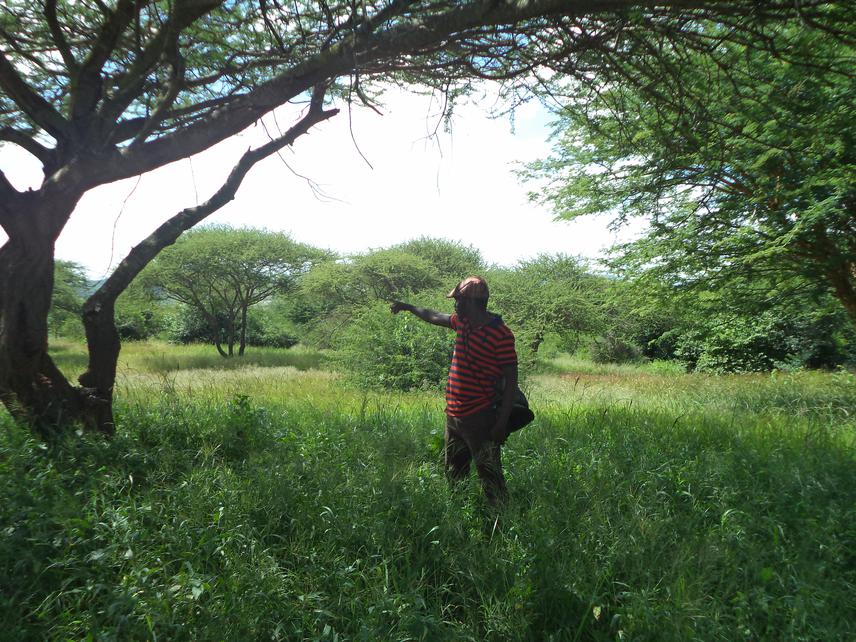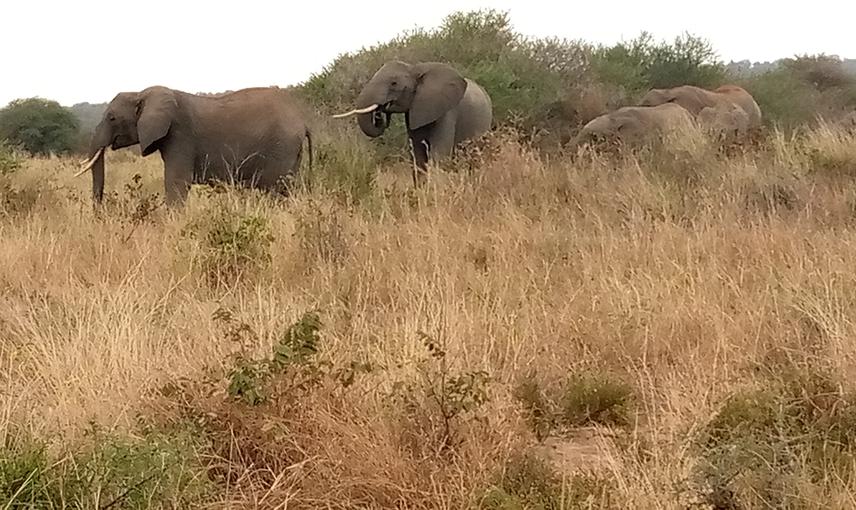Elkana Hezron Misana
Other projects
20 Apr 2022
Characterisation of Maasai Alalili Silvo-Pastoral Conservation Systems of Northern Tanzania
Rangeland ecosystems and the associated traditional conservation practices are reported to effectively lessen the impacts of global climate change by sequestering and storing more than 30% of terrestrial biomass and global soil organic carbon. The UN and its partner agencies recommend the utilization of traditional practices by local communities to protect ecosystem health as part of the implementation strategies for Sustainable Development Goals (SDGs). Irrespective of their recognition by the 1992 Convention on Biological Diversity (CBD), local people's traditional or indigenous approaches are deteriorating thus losing their potential for climate change mitigation. This loss in our modern era endangers the management of carbon storage in biomass and soil organic matter thus deterring climate change mitigation initiatives.

Field survey for fodder plant species diversity assessment in the Alalili systems. ©Elkana Hezron (2023).
Like other traditional systems, Alalili practices have been useful in maintaining the nature and suitability of pastures for livestock and wildlife. The first project work depicted that Alalili systems still hold substantial diverse fodder plants that rangelands used to host way back before the 1980s (Hezron et al, 2023). In this regard, they work as potential reservoirs for fodder species that can be used to restore degraded areas that have recently been transformed by degradation drivers. However, Alalili systems indigenous to Maasai communities in East Africa are among many local and traditional knowledge in the world today experiencing pressures such as changes in social-cultural practices and political regimes (Hezron et al., 2024; Selemani, 2020). Their roles in climate mitigation and resilience with carbon (C) storage potential are still unknown among scientists. Local communities are incapable of associating mitigation and adaptation strategies with Alalili practices as a nature-based approach to alleviating the impacts of climate change. This demands the conduction of extensive research in the Alalili systems to; (1) sensitize public awareness on the importance of Alalili systems as the cost-effective and greener approach to fighting climate change and (2) estimate the carbon storage capacity of the soil and vegetation species.

Elephants crossing in one of the Alalili systems when relocating from Randilen WMA to Lake Manyara National Park. ©Elkana Hezron (2022).
Considering the demonstrated resilience and sustainability potential of the Alalili systems, estimation of the carbon storage capacity of the soil and vegetative species in these practices will facilitate a long-term plan for managing the local impacts of climate change. Sensitizing the community awareness on the importance of Alalili systems as the cost-effective and greener approach will provide an assured survival of wild vegetation for enhanced sequestration of high levels of atmospheric carbon dioxide while adding value to rangeland resilience over local climate change.